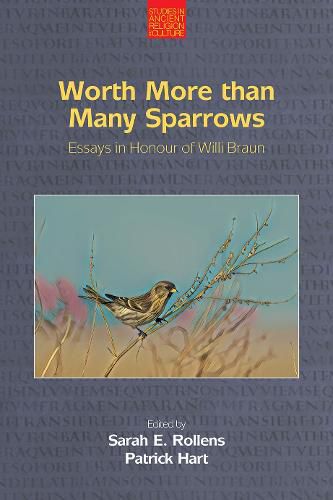Readings Newsletter
Become a Readings Member to make your shopping experience even easier.
Sign in or sign up for free!
You’re not far away from qualifying for FREE standard shipping within Australia
You’ve qualified for FREE standard shipping within Australia
The cart is loading…






This title is printed to order. This book may have been self-published. If so, we cannot guarantee the quality of the content. In the main most books will have gone through the editing process however some may not. We therefore suggest that you be aware of this before ordering this book. If in doubt check either the author or publisher’s details as we are unable to accept any returns unless they are faulty. Please contact us if you have any questions.
When it comes to the study of religion, Willi Braun is a paragon of what a methodologically rigorous and epistemologically modest academic ought to look like. Braun’s career began in the 1990s, when he studied among a cadre of other notable graduate students at the Centre for the Study of Religion at University of Toronto–what is often referred to as the Toronto School. There, Braun and his comrades maintained a fidelity to a particular methodological ethos: that religion should be studied as a fundamentally human phenomenon and that scholars should examine how the data of religions (texts, artifacts, rituals, etc) reveal the interests, concerns, and values of the humans who imbue that same data with something divine or transcendent. The Toronto School’s commitment to this ethos led to the inauguration of the North American Society for the Study of Religion and fostered the development of the now-renowned journal Method & Theory in the Study of Religion. Braun was a catalyst in these discipline-changing initiatives and brought them to bear in his own work on antiquity and early Christianities. Yet beyond that, Braun’s career also involved an unwavering commitment to pedagogy, as he selflessly endeavored to pass on his exceptional professional and personal qualities to his students. In an effort to honor Braun’s work and mentorship, this volume is focused on exploring, probing, and theorizing ancient religious data as reflections of human interests and activities.
$9.00 standard shipping within Australia
FREE standard shipping within Australia for orders over $100.00
Express & International shipping calculated at checkout
This title is printed to order. This book may have been self-published. If so, we cannot guarantee the quality of the content. In the main most books will have gone through the editing process however some may not. We therefore suggest that you be aware of this before ordering this book. If in doubt check either the author or publisher’s details as we are unable to accept any returns unless they are faulty. Please contact us if you have any questions.
When it comes to the study of religion, Willi Braun is a paragon of what a methodologically rigorous and epistemologically modest academic ought to look like. Braun’s career began in the 1990s, when he studied among a cadre of other notable graduate students at the Centre for the Study of Religion at University of Toronto–what is often referred to as the Toronto School. There, Braun and his comrades maintained a fidelity to a particular methodological ethos: that religion should be studied as a fundamentally human phenomenon and that scholars should examine how the data of religions (texts, artifacts, rituals, etc) reveal the interests, concerns, and values of the humans who imbue that same data with something divine or transcendent. The Toronto School’s commitment to this ethos led to the inauguration of the North American Society for the Study of Religion and fostered the development of the now-renowned journal Method & Theory in the Study of Religion. Braun was a catalyst in these discipline-changing initiatives and brought them to bear in his own work on antiquity and early Christianities. Yet beyond that, Braun’s career also involved an unwavering commitment to pedagogy, as he selflessly endeavored to pass on his exceptional professional and personal qualities to his students. In an effort to honor Braun’s work and mentorship, this volume is focused on exploring, probing, and theorizing ancient religious data as reflections of human interests and activities.